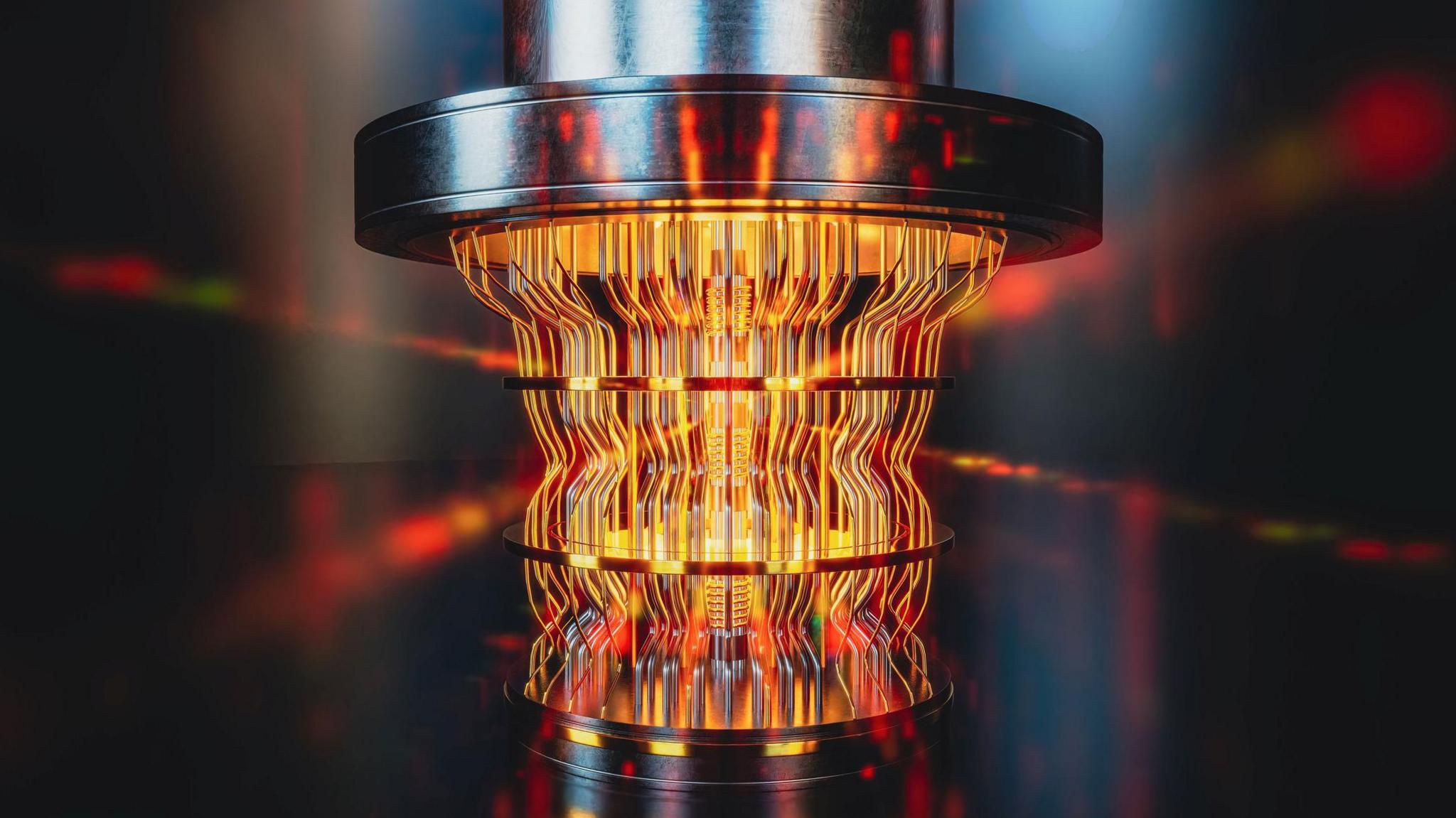State-of-the-art quantum computer switched on
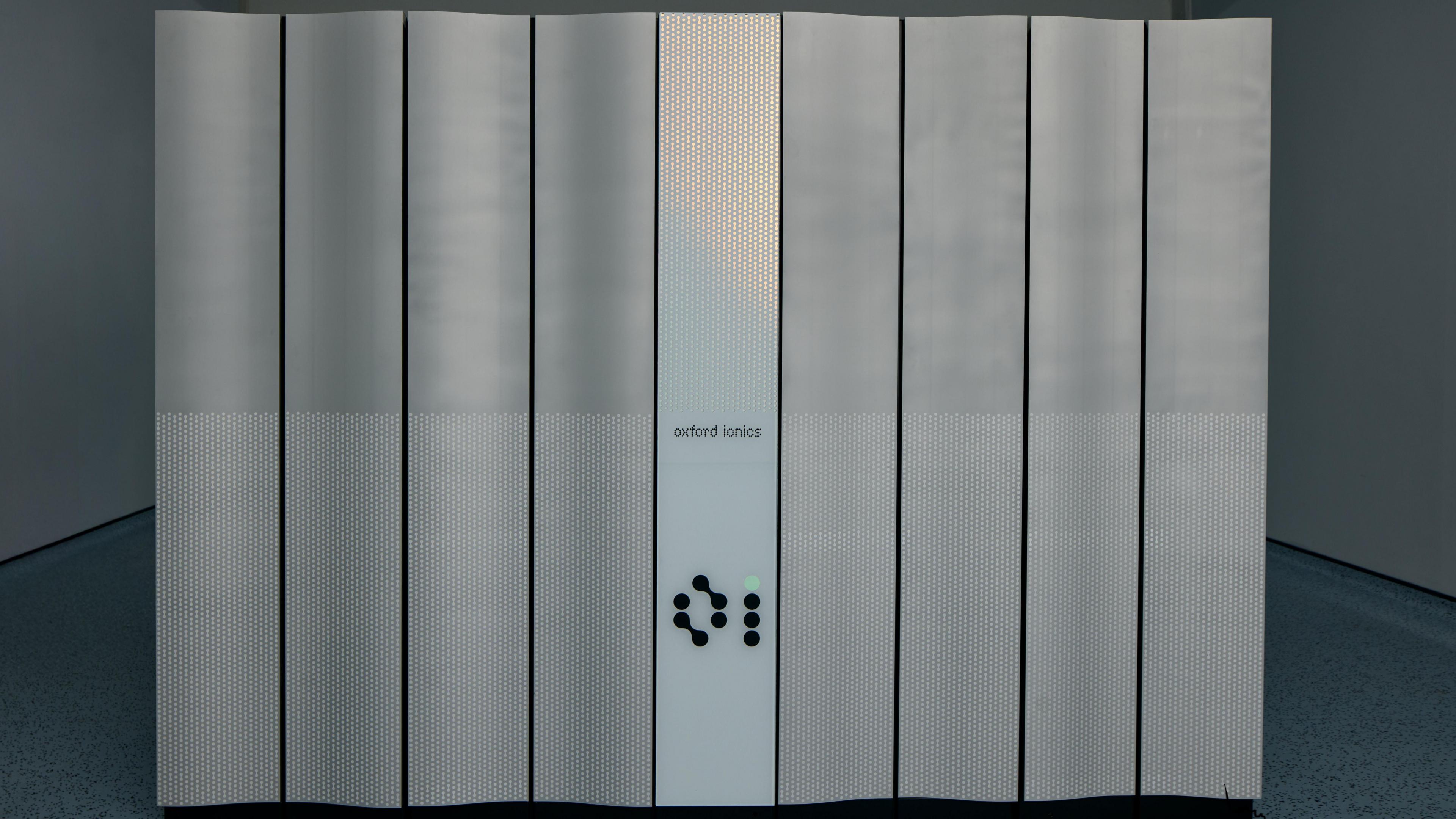
Founders of Quartet say the systems they will build next year "will outperform the largest supercomputers humanity will ever build"
- Published
A new state-of-the-art quantum computer said to be the most advanced in the world has just been switched on.
The full-stack computer, called Quartet, has been delivered to the UK's National Quantum Computing Centre at its Harwell campus in Oxfordshire by Oxford Ionics - a leading manufacturer in trapped-ion quantum computing.
Dr Chris Ballance, Oxford Ionics chief executive and co-founder, said that meant they could "solve problems in minutes, we otherwise wouldn't think of solvable at all with a computer".
The announcement comes after IonQ, a US-listed quantum company, agreed to acquire Oxford Ionics for $1.1bn in June.
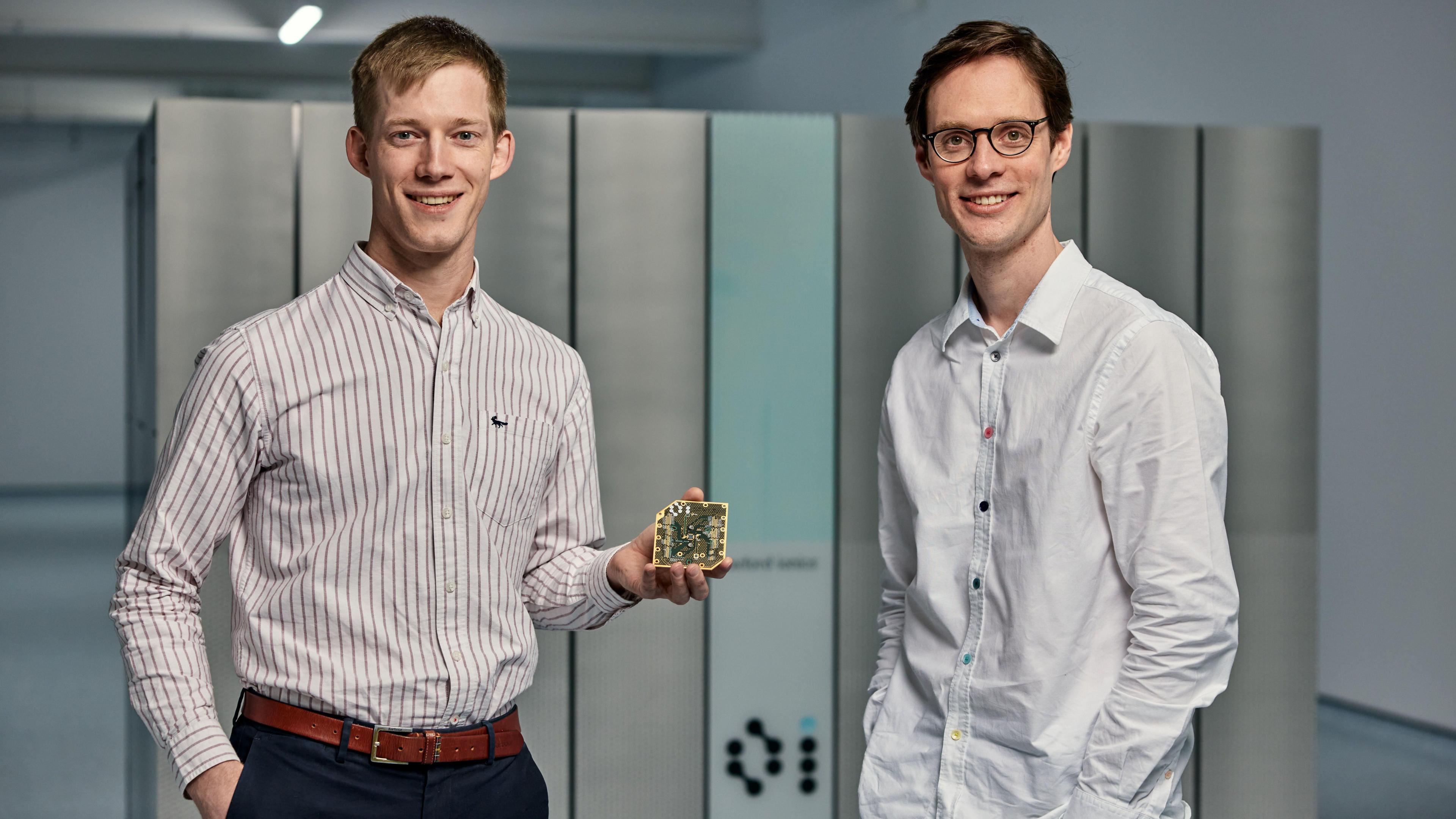
Dr Chris Ballance (left) said the new quantum compute would solve problems "way faster" such as building better battery catalysts
Speaking to BBC Radio 4, Dr Ballance said quantum computers were "the most powerful form of computer allowed by the laws of physics".
"The hardware is fundamentally very different," he said.
"[It] just calculates problems in a very different way and a conventional computer is much closer to an abacus in conventional compute power than it is to a quantum computer."
The company said the delivery marked "a significant step forward in making commercially valuable quantum computing a reality" and "ensuring the UK is equipped with the compute power to solve some of the world's most pressing challenges".
"For that right now, if you want to build a better battery, you mostly have to go into a lab and test out some chemicals," Dr Ballance said.
"Those kind of problems we've known for 50 years how to write down - we just can't solve them on conventional computers.
"And quantum computers will allow us to take a lot of that work from the lab into a problem we can now solve on a computer."
He said a conventional supercomputer "might use the output of a small power plant to power it".
"Our quantum computer uses less power than an electric kettle.
"The systems we're building next year, which will outperform ... the largest supercomputers humanity will ever build, will still use less power than just one server rack in a standard data centre."
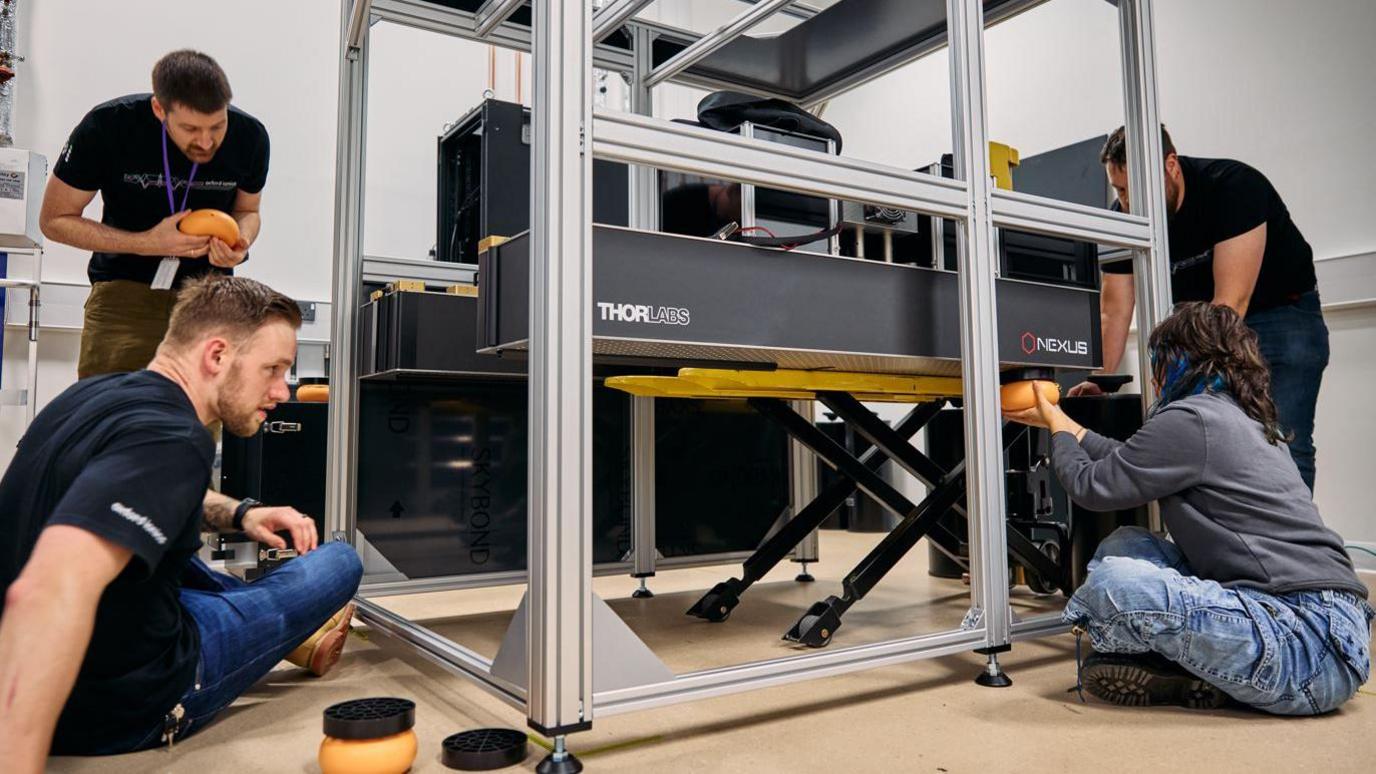
Quartet has been delivered and installed by Oxford Ionics to the UK's National Quantum Computing Centre at its Harwell campus
Dr Ballance said they had accepted the IonQ deal "because the business logic was incredible".
"IonQ has an amazing team and they've had quantum computers operated on major cloud platforms since before I founded Oxford Ionic.
"We have this new core technology and plugging those things together jointly allows us to speed up our combined roadmaps by multiple years."
Get in touch
Do you have a story BBC Oxfordshire should cover?
You can follow BBC Oxfordshire on Facebook, external, X (Twitter), external, or Instagram, external.
Related topics
Similar stories
- Published21 February
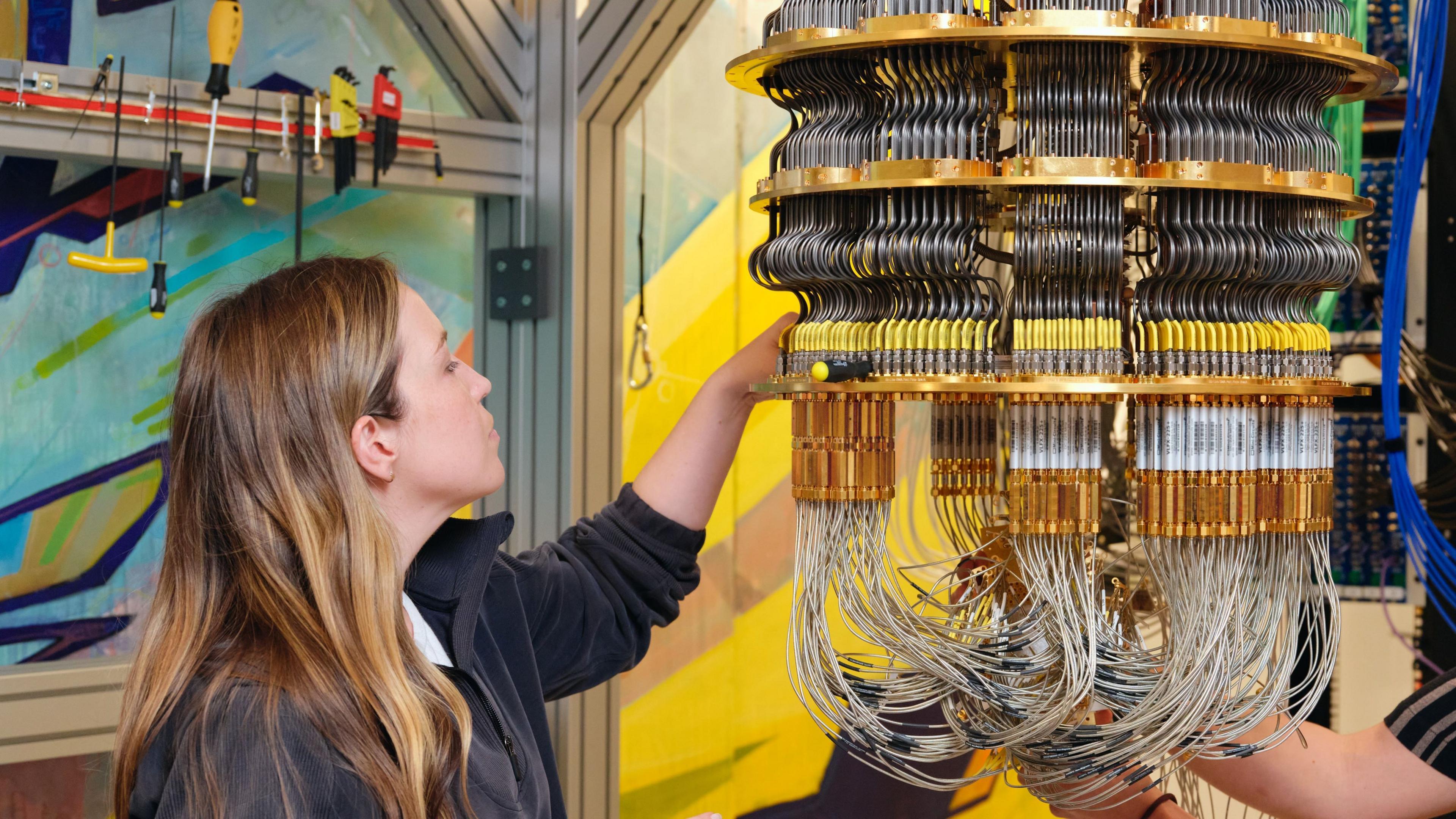
- Published16 October 2024
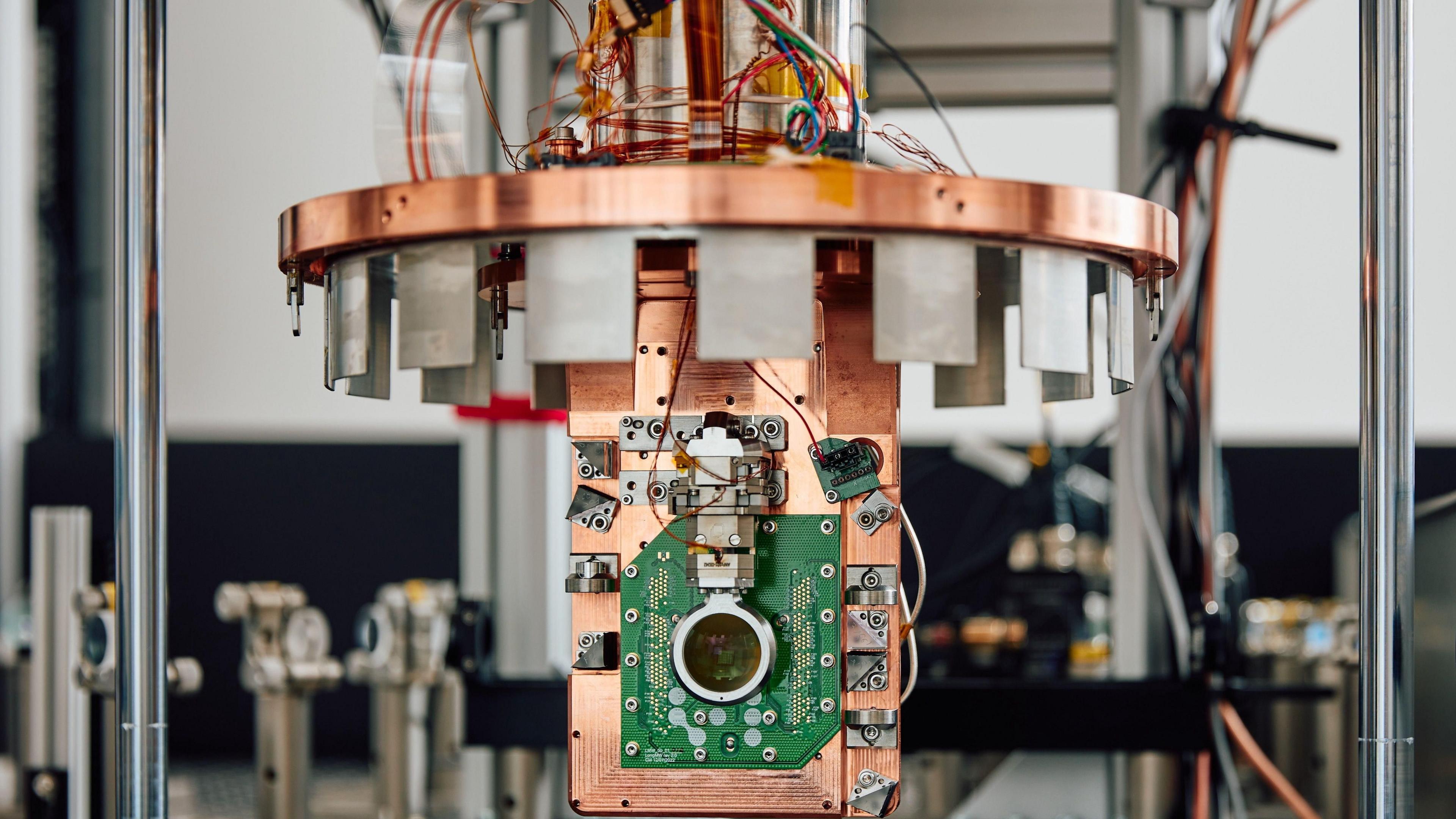
- Published31 July 2024
